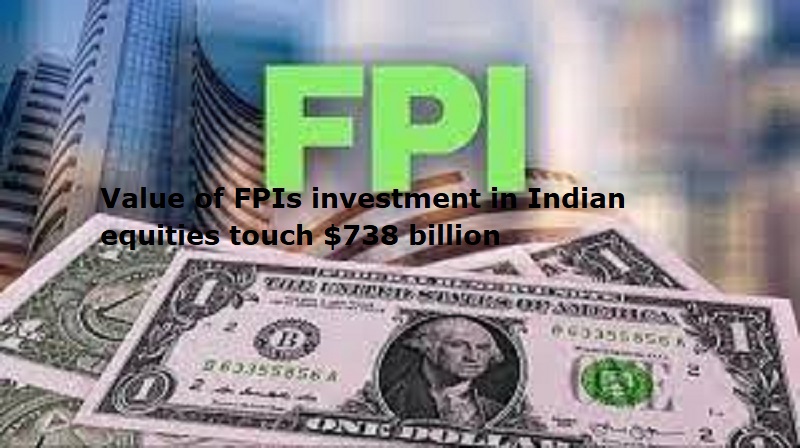
Mumbai: The value of FPIs (Foreign Portfolio Investors) holding in Indian equities reached $738 billion in the three months ended December 2023. This witnessed a surge of 13 per cent from the preceding quarter. The value of FPIs investment was at $651 billion in the September quarter of the current fiscal. On a year-on-year basis, the value of such investments rose 26 per cent from $584 billion in December 2022.
However, FPIs’ contribution to Indian equity market capitalisation fell marginally during the quarter under review to 16.83 per cent from 16.95 per cent in the previous quarter. After withdrawing $5.38 billion in the September quarter, foreign investors were net buyers in the Indian equity markets to the tune of $6.07 billion in the three months ended December 2023.
Also Read: Indian Meteorological Department predict rainfall in these states till 21 February
As per market experts, the political stability following the Bharatiya Janata Party’s victory in three major state elections created a favorable climate for investors. Additionally, the robust performance of the Indian economy compared to other similar economies drew investor interest.
According to data released by the National Securities Depository Ltd (NSDL), for the entire calendar year 2023, FPIs bought Rs 1.71 lakh crore in Indian equities and the total inflow stands at Rs 2.37 lakh crore taking into account debt, hybrid, debt-VRR, and equities. FPIs’ net investment in Indian debt market stands at Rs 68,663 crore during 2023.
Indian equities witnessed a net outflow of Rs 1.21 lakh crore by FPIs in 2022. Before the outflow, FPIs invested money in the last three years. FPIs made a net infusion of Rs 25,752 crore in equities in 2021, Rs 1.7 lakh crore in 2020, and Rs 1.01 lakh crore in 2019. FPIs took out funds worth Rs 15,910 crore in 2022, Rs 10,359 crore in 2021, and Rs 1.05 lakh crore in 2020 from debt markets.
Foreign institutional investors (FII) or Foreign portfolio investors (FPI) are those who invest in the financial assets of a country while not being part of it. On the other hand, Domestic Institutional Investors (DII) are those who invest in the country they are living in. Both types of investors can impact the economy’s net investment flows.

Post Your Comments